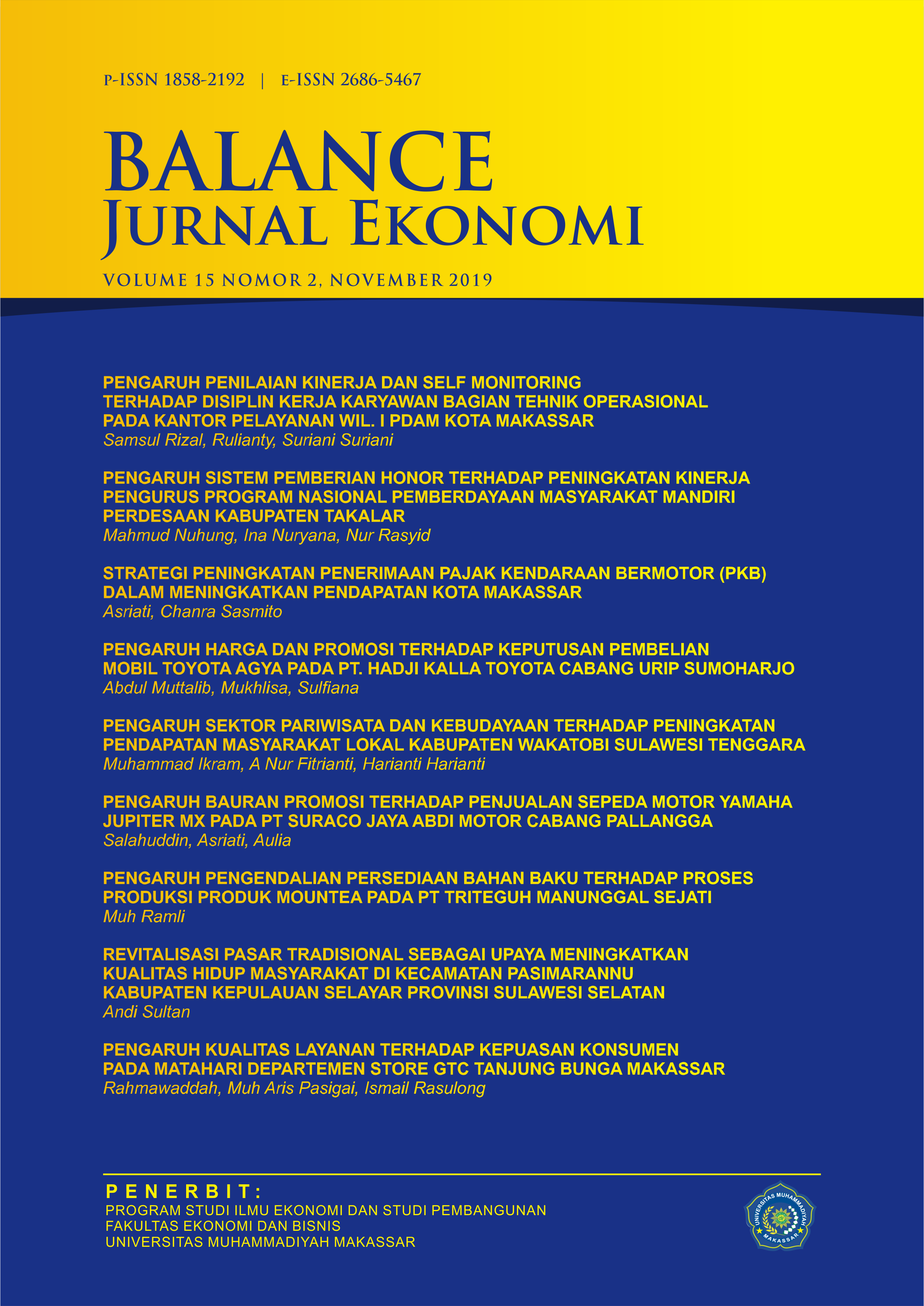EFFECT OF TRAINING AND REWARD SYSTEM ON EMPLOYEE PERFORMANCE (STUDY AT PT. BIO FARMA PERSERO)
DOI: https://doi.org/10.26618/jeb.v16i1.3474
Abstract
This research aims to determine the effect of Training and Reward System on the performance of employees of PT. Bio Farma (Persero). This goal is motivated by the phenomenon of the problem being faced by the company PT. Bio Farma (Persero), which is the achievement of employee performance in 2016 to 2018, has not yet reached the expected target. Among the many factors that can affect employee performance, there are two main factors that will be reviewed in this study. The two factors are training and reward system. Taking these two factors is based on the results of interviews with the company and is supported by data that has been collected. This research uses quantitative methods with data analysis techniques used are descriptive analysis and regression. The number of samples in this study were 30 employees of PT. Bio Farma (Persero) Division of Human Resources is determined by the saturation sampling method. Based on the results of research that has been done it can be concluded that the training and reward system has a significant and positive effect on employee performance with a score of 76.4%. These results support the implementation of training and reward systems at PT. Bio Farma (Persero) so that it can have an impact on improving the performance of its employees.
References
Bintoro, & Daryanto. (2017). Manajemen Penilaian Kinerja Karyawan. Yogyakarta: Gava Media.
Indrawati. (2015). Metode Penelitian Manajemen dan Bisnis Konvergensi Teknologi Komunikasi dan Informasi. Bandung: PT. Refika Aditama
Irawanti, A. (2016). Pengaruh Pemberian Reward Dan Punishment Terhadap Kinerja Karyawan ( Studi Kasus Pada Bmt Lima Satu Sejahtera Jepara).
Kadarisman, M. (2012). Pengertian dan Filosofi Manajemen Kompensasi. Manajemen Sumber Daya Manusia.
Kaswan. (2011). Pelatihan dan Pengembangan untuk Meningkatkan Kinerja SDM. Bandung: CV Alfabeta.
Kotler, & Armstrong. (2008). Prinsip–Prinsip Pemasaran. Edisi 12, Jilid 1. Jakarta: Erlangga.
Kotler, P, & Keller, K. L. (2012). Marketing Management 14th edition. Harlow: Pearson Education.
Mangkunegara, A. P., & Waris, A. (2015). Effect of Training, Competence and Discipline on Employee Performance in Company (Case Study in PT. Asuransi Bangun Askrida). 2nd Global Conference on Business and Social Science (hal. Page 1240-1251). Bali: ScienceDirect.
Mangkunegara, A. P., & Waris, A. (2015). Performance In Company (Case Study in PT Asuransi Bangun Askrida). Procedia-Social and Behavioral Vol 211, (hal. 1240-1251).
Moorhead, & Griffin. (2013). PENERAPAN SISTEM PEMBERIAN REWARD PADA HOTEL INNA GRAND BALI. FORUM MANAJEMEN, Volume 17 Nomor 2 Tahun 2019.
Nasution, M. N. (2005). Manajemen Mutu Terpadu. Bogor: Ghalia Indah.
Ningrum, W., Sunuharyo, B. S., & Hakam, M. S. (2013). Pengaruh Pendidikan Dan Pelatihan Terhadap Kinerja Karyawan (Studi Pada Karyawan Joint Operating Body PertaminaPertoChina East Java). Jurnal Administrasi Bisnis, Vol. 6 No. 2.
Sinambela, L. P. (2016). Manajemen Sumber Daya Manusia. Jakarta: Bumi Aksara.
Siregar, S. (2013). Statistik Parametrik untuk Penelitian Kuantitatif. Jakarta: Bumi Aksara.
Soewadji, & Jusuf. (2012). Pengantar Metodologi Penelitian (1st ed.). Jakarta: Mitra Wacana Media.
Sudarmanto. (2014). Kinerja dan Pengembangan Kompetensi SDM. Yogyakarta: Pustaka Pelajar.
Sugiyono. (2017). Metode Penelitian Manajemen. Bandung: Alfabeta.
Wardhana, A. (2014). Manajemen Sumber Daya Manusia. Bandung: PT Karya Manunggal Lithomas.












